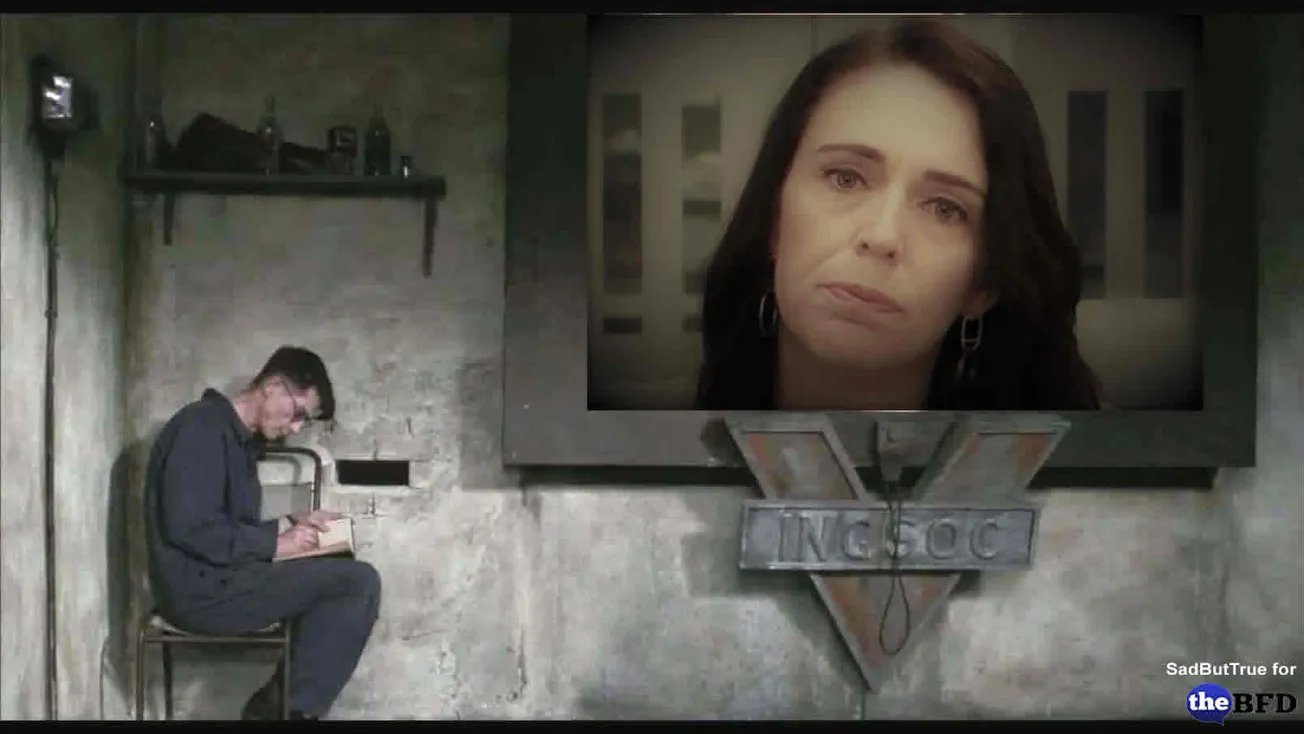Table of Contents
NewZealandDoc
Philadelphia-born psychoanalyst, psychiatrist and author who emigrated to New Zealand in 2006. He retired from psychiatric practice in 2021, refusing to be inoculated, after working in the public sector in New Zealand.
In early 2020 I was struck most not by the powers of the inimitable covid pathogen – powers that were ostensibly uniquely lethal according to the authorities who bombarded us with death counts and images of extreme containment measures and, also, measures to remove the mounting corpses – but by the ease with which the noxious intimation of mortality could so paralyze even the most highly educated.
Fear, palpable fear, trumped up and garnished by a relentless propaganda campaign with salivating talking heads who represented trusted media sources of truth, won the day. The overwhelming vast majority were so convinced, that neither home detention, nor restriction of mobility, nor the prevention of obsequies that marked our humanity – visiting our beloved in nursing homes, attending the funerals of our deceased, paying our personal respects – could shake their trust in governments and institutions who demanded the curtailment of our unalienable rights for the sake of preserving suddenly precious lives.
Most of us went along with it all, the sacrifices, the restrictions, the insults to our autonomy, because we were, frankly, afraid. Most, but not all.
And of what were we afraid? Certain death? Suffering?
I, for one, saw no evidence of anything out of the normal cycle of life and death. The covid pathogen, even by highly dubious PCR standards, was no worse than a bad seasonal flu. There is a time to be born and a time to die.
I waited for the flatbed trucks to make their rounds and cart the corpses of the homeless off – isn’t this what would happen in a truly devastating pandemic? They never appeared.
Instead arrived dramatic warnings and images purporting to show the depth of the calamity in China, in Italy, and in New York … all, in retrospect, a sham, a work of perverse theatre whose goal was to convince the world that we were so beset that there was no more choice but to contain ourselves, to work from home, to find a common goal in common sacrifice to rank macabre absurdities: useless masks, despicably useless distancing. They told us that the healthy could be dangerous.
So we, the most of us, complied. Two weeks to squelch the curve became more months. They told us the hospitals would overflow and, perhaps, in some locales they did. But here, where I reside, the hospitals were empty of the people who really needed them.
They, curiously, never once encouraged treatment or prevention of the deadly virus that had spread worldwide and had brought the thriving marketplace of human commerce to a halt.
Fear, however, was our common coin. It justified abuse, and, eventually, apartheid: segregation of the jabbed from those who chose to cherish common sense and physical autonomy.
Now as facts emerge about this theatrical spectacle, about the consequences of deception, about a ‘vaccine’ that maims and kills and was never ever justified, those who went along will look the other way. The bodies mount, the strokes, the sudden deaths among the young, the faulty trials that would never have proceeded in a just and honest system … all of these are culminating to a truth.
Our governments were never interested in health, our doctors never strong enough to faithfully uphold the tenets of their precious duty – barring those few who paid the price of losing livelihoods and licences for daring to be faithful to their principles.
The wages of fear have been munificent for those who, contrary to their common sense, complied – all those emoluments, all those incentives for following the party line, for lining up the hordes to jab and jab again!
But, nonetheless, a relatively few were unafraid of worldly loss and unafraid enough of death to live with freedom, dignity, and integrity.
The famous Russian novel ‘Oblomov’ describes a character who rarely ventures forth beyond his bed, a man who really doesn’t live, though he is ‘safe’ at home. Oblomov was, in 1859 when Goncharov’s work appeared, an anomaly. Yet now it seems he has become our age’s new ideal: the ever-fearful good for nothing work at home submissive. The perfect citizen for a State aspiring towards complete control.
God save us – or, better yet, let’s save ourselves from such a fate.
Emanuel E. Garcia, M.D.
April 2023









